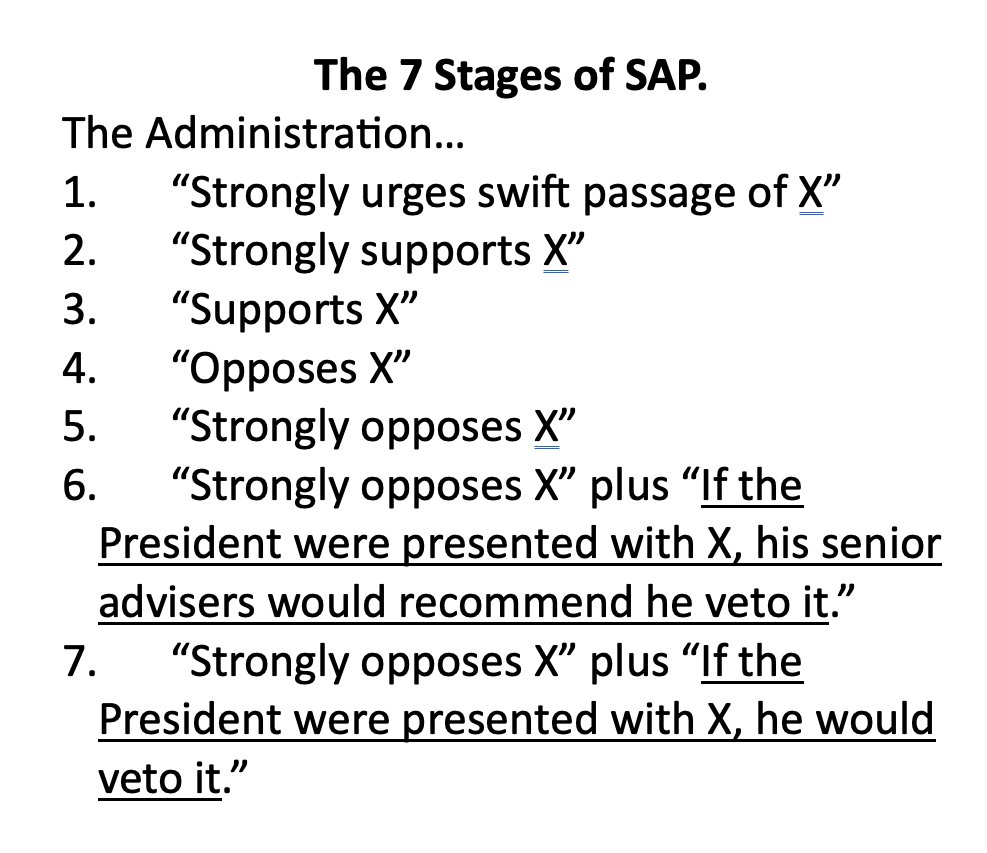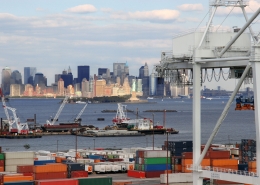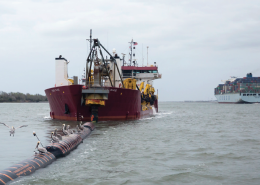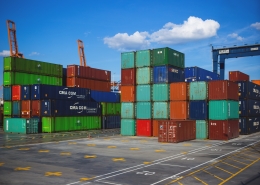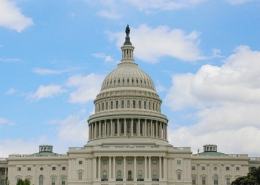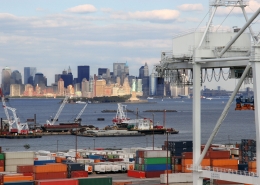Yesterday, the House of Representatives passed a bill (H.R. 1435) preventing California and other states from passing or enforcing regulations that “directly or indirectly limit the sale or use of new motor vehicles with internal combustion engines…”
The vote, in response to California’s greenhouse gas emission goals that ban the sale of new vehicles with internal combustion engines (ICEs) within the state by the year 2035, was almost totally partisan, with all 214 Republicans and 8 Democrats voting “yes” and the other 190 Democrats voting “no.” (The 8 Dem “yes” votes were Reps. Caraveo (CO), Costa (CA), Cuellar (TX), Davis (NC), Golden (ME), Higgins (NY), Perez (WA), and Vasquez (NM).)
The bill is simple and is only two pages long. California’s authority to regulate GHG emissions and, thusly, to ban ICE vehicles is predicated on authority delegated to the state under the federal Clean Air Act. H.R. 1435 amends the Clean Air Act to specify that states cannot use that delegated authority to limit the sale or use of new ICE vehicles, and makes corresponding changes to the law to require the EPA Administrator to disapprove California’s recent regulation as being inconsistent with the law, ex post facto. But the Administrator might also have to reject earlier uses of delegation authority by California.
The issue is about more than just the Golden State, because, as the California rule acknowledges, “through Section 177 of the Clean Air Act, fifteen states, consisting of Colorado, Connecticut, Maine, Maryland, Massachusetts, Minnesota, Nevada, New Jersey, New York, New Mexico, Oregon, Rhode Island, Vermont, Virginia, and Washington, have adopted California’s ZEV and LEV regulations, and two additional states, Pennsylvania and Delaware, have adopted California’s LEV regulations and are considering adopting California’s ZEV regulation, which, when combined with California, account for about 40 percent of both the population or people and new light-duty vehicle sales in the United States…”
During debate on the bill, Energy and Commerce Committee ranking Democrat Frank Pallone (NJ) argued, “This bill would turn back the clock over 50 years of both Congress and the EPA recognizing California’s statutory authority to set more protective vehicle emission standards. It infringes on the rights of States like my home State of New Jersey to voluntarily adopt those standards to protect people from dangerous air pollution. This bill would also cause chaos and uncertainty for the American automotive industry by forcing the EPA to revoke waivers going all the way back to 2013.”
Rep. Mike Bilirakis (R-FL), one of the authors of the bill, framed it in pocketbook terms: “Currently, auto manufacturers face significant losses with their EV divisions and rely on the profits from their gas-powered vehicle sales to maintain profitability. If this California rule stands, auto manufacturers will likely be forced to increase retail costs on all their vehicle options to remain profitable. Many of my constituents are on fixed incomes and cannot afford to humor California’s or the Biden administration’s radical green policies.”
The bill now goes to the Senate, where it is incredibly unlikely to move on its own through “regular order,” since the bill has neither the support of the Majority Leader nor 60 votes in support, both of which are prerequisites to regular order. However, if offered as an amendment to something else, H.R. 1435 or something very similar might be able to get 51 or 52 Senate votes in support, which would then put the burden on the opponents of the amendment to filibuster whatever underlying bill served as vehicle for the amendment.
Perhaps acknowledging that this bill might reach his desk attached to something else, the official Statement of Administration Policy from the White House on H.R. 1435 does not threaten a veto. It does say that the Administration “strongly opposes” passage of the bill, but that is not the same as a veto threat. Lest there be any doubt about that, one only has to look six months back, when Democrats were confident that President Biden would veto a GOP bill overturning local District of Columbia criminal justice reform, because of a White House SAP stating that the President “opposes the bill.” Biden would up signing the bill into law, stunning younger Democrats who did not know that if the SAP does not contain the word “veto,” it is not a veto threat.
As I said at the time, there are seven stages of SAP-speak -three positive, and four negative:
